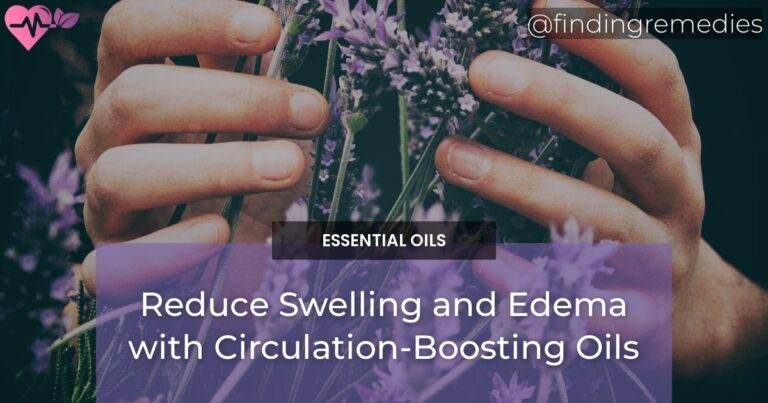Swelling and edema can be uncomfortable and frustrating conditions to deal with. Whether caused by fluid retention, inflammation, injury, medications, pregnancy, or underlying health conditions, finding relief is essential. One natural approach to reducing swelling and edema is through the use of circulation-boosting essential oils. These oils can help improve blood flow, reduce inflammation, and promote lymphatic drainage.
Causes of Edema
Fluid retention
Fluid retention occurs when excess fluid builds up in the tissues, leading to swelling. This can be caused by various factors such as high salt intake, hormonal changes, or certain medications.
Inflammation
Inflammation is a natural response by the body to injury or infection. However, chronic inflammation can lead to edema. Conditions like arthritis or chronic venous insufficiency can cause ongoing inflammation and swelling.
ALSO READ
Injury or trauma
When the body experiences an injury or trauma, it responds by sending extra fluid to the affected area, causing swelling and edema.
Medications
Some medications, such as corticosteroids or nonsteroidal anti-inflammatory drugs (NSAIDs), can cause fluid retention as a side effect.
ALSO READ
Pregnancy
During pregnancy, hormonal changes and increased blood volume can lead to fluid retention and swelling, especially in the legs and feet.
Underlying health conditions
Medical conditions like heart disease, kidney disease, or lymphedema can contribute to the development of edema.
Best Essential Oils for Fluid Retention
Juniper Berry Oil
Juniper berry oil is known for its diuretic properties, which can help reduce water retention and promote the elimination of toxins from the body.
Cypress Oil
Cypress oil is beneficial for improving circulation and lymphatic drainage, making it useful for reducing swelling and edema.
Rosemary Oil
Rosemary oil has anti-inflammatory properties that can help decrease swelling and alleviate discomfort caused by edema.
Fennel Oil
Fennel oil acts as a natural diuretic and can aid in reducing fluid retention, making it an excellent choice for managing swelling and edema.
Grapefruit Oil
Grapefruit oil is known for its detoxifying abilities and can help stimulate lymphatic drainage, leading to a reduction in swelling and edema.
Recommended Massage Techniques and Recipes
Lymphatic drainage massage
Lymphatic drainage massage is a gentle technique that stimulates the flow of lymph fluid, helping to reduce swelling. To perform this massage, use a few drops of any of the recommended essential oils mixed with a carrier oil like coconut oil. Massage the affected area using gentle, circular motions, moving towards the heart.
Elevating the affected area
Elevating the affected area above the heart level can help reduce swelling by promoting better circulation and assisting lymphatic drainage.
Recipe for lymphatic drainage massage oil
- 5 drops of fennel oil
- 5 drops of cypress oil
- 5 drops of grapefruit oil
- 2 tablespoons of coconut oil (carrier oil)
Mix the essential oils with the carrier oil and apply the mixture during lymphatic drainage massage.
Recipe for a cooling compress
- 10 drops of peppermint oil
- 5 drops of ginger oil
- 1 cup of cold water
Add the essential oils to the cold water, soak a clean cloth in the mixture, and apply it as a compress to the swollen area for relief.
When to See a Doctor
Severe or sudden swelling
If you experience severe or sudden swelling that affects your ability to move or causes extreme discomfort, it is important to seek medical attention.
Swelling accompanied by pain or redness
If the swelling is accompanied by pain, redness, or warmth in the affected area, it could indicate an infection or another underlying condition that requires medical evaluation.
Difficulty breathing or chest pain
If you experience swelling accompanied by difficulty breathing or chest pain, it could be a sign of a serious medical emergency. Seek immediate medical help.
Swelling after an injury or surgery
If swelling persists or worsens after an injury or surgical procedure, it is advisable to consult with a healthcare professional to rule out any complications.
Conclusion
Reducing swelling and edema can be achieved through various natural remedies, including the use of circulation-boosting essential oils and adopting self-care techniques like lymphatic drainage massage and elevating the affected area. However, it is crucial to pay attention to any severe or persistent swelling and seek medical advice when necessary. By incorporating these recommendations into your routine, you can find relief from swelling and edema, promoting overall well-being and comfort.

